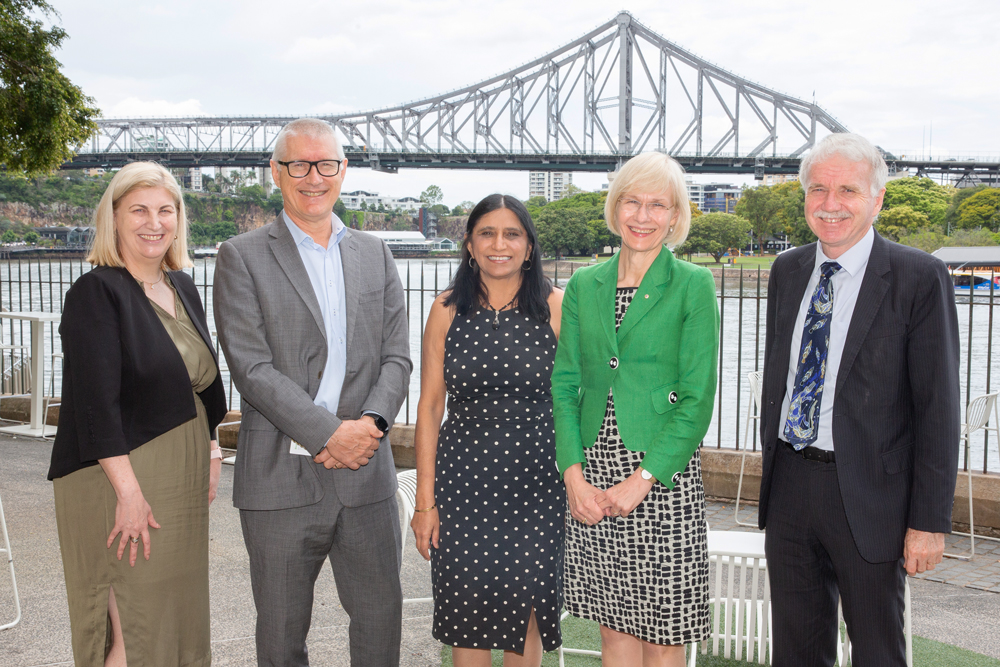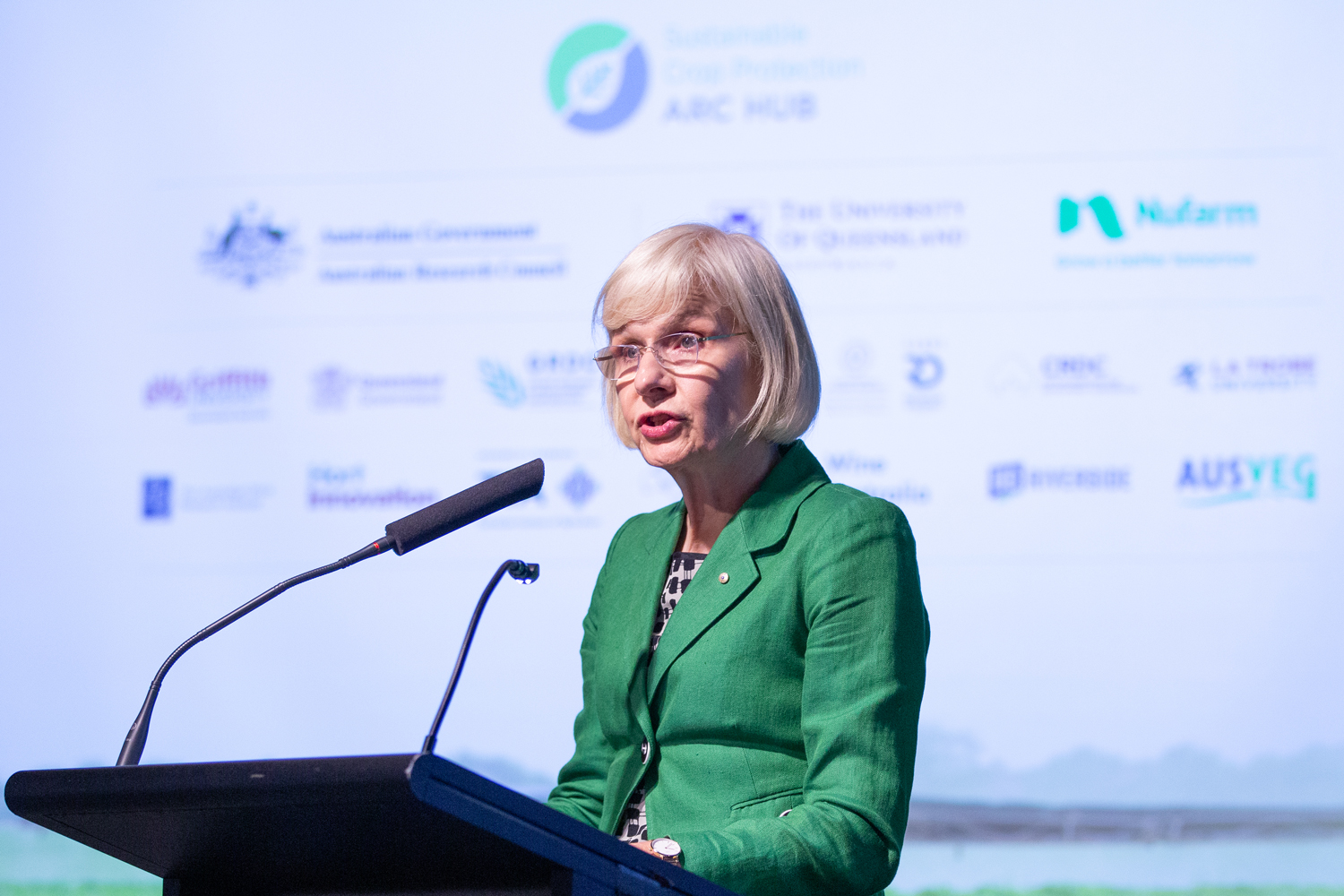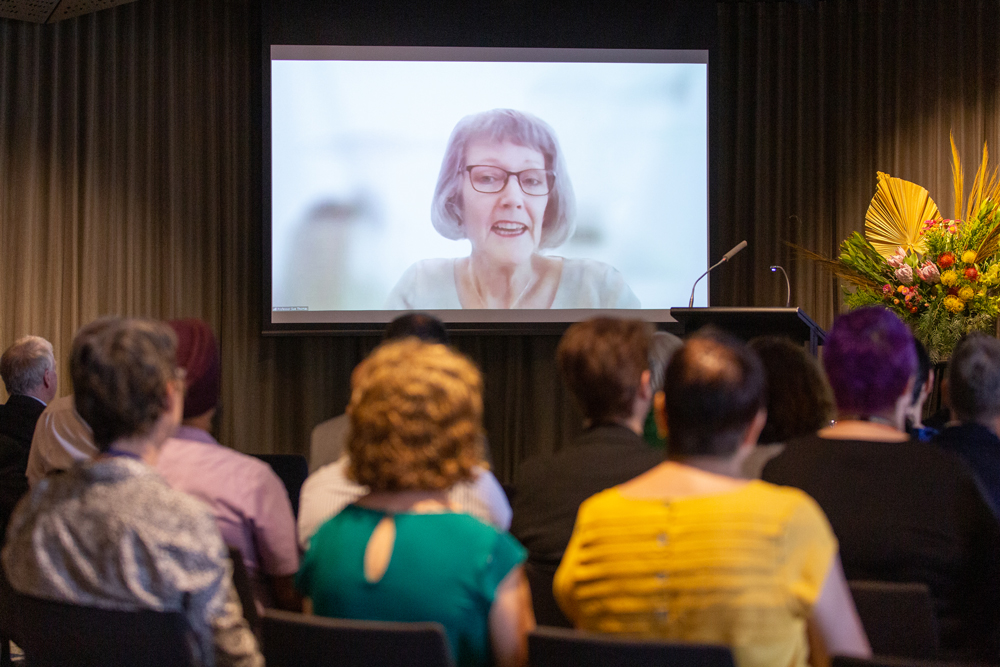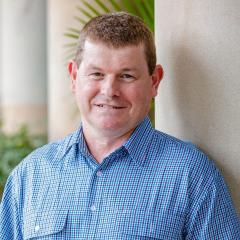“If we are serious about holding temperature rises to 1.5 degrees and adapting to the impacts of climate change, we must change the way we look after our land and seas and how we grow our food.”
Alok Sharma, President of the COP26, held in Glasgow, 31 Oct 2021 – 12 Nov 2021

A research hub dedicated to the application of a revolutionary alternative to chemical fungicides to protect Australia’s $5 trillion global food and agribusiness sector was launched in Brisbane on Tuesday 9 November 2021.
The ARC Research Hub for Sustainable Crop Protection, headed by Professor Neena Mitter, builds upon on UQ’s BioClay technology to create a ‘smart’ form of biological crop protection.
“Globally, an estimated 40 per cent of food grown is lost to crop pests and pathogens,” Professor Mitter said.
“We will be bringing biological-based fungicides to Australian broadacre and horticultural crops, resulting in reduced chemical use, increased crop productivity, and improved sustainability across the supply chain.”
The Hub builds on UQ’s innovative BioClay technology, which has been in development for almost a decade, that stimulates a plant’s immune system to fight disease.
The technology involves topical application of RNA interference using clay particles as carriers.
“There is no genetic modification and the clay is completely biodegradable,” Professor Mitter said.
Professor Deborah Terry:

“With this Hub, we have a significant opportunity to transform crop protection technology in a manner that is safe and environmentally sensitive.”
The Hub builds on UQ’s innovative BioClay technology, which has been in development for almost a decade, that acts like a vaccine, stimulating a plant’s immune system to fight disease.
The Hub is combining this innovative technology with regulatory, commercial and social licensing expertise to encourage industry and consumer uptake of the product.
In addition to our commercialisation partner, Nufarm, more than 15 agencies are involved – too many to list now – across the higher education, agriculture, viticulture and primary industries’ sectors.
Collectively, these agencies have provided more than $13 million in funding and in-kind support for the Hub.
And, of course, we are immensely grateful to the Australian Government for $ 4.8 million in funding though the Australian Research Council.
It’s a genuinely transformational opportunity that could help advance Australia’s $60 billion agriculture industry and help achieve food security globally in a way that is consistent with the Paris Climate agreement and COP26 agenda.
It’s hope for the future.”
- Professor Deborah Terry, Professor Deborah Terry AO FASSA, Vice-Chancellor and President of The University of Queensland
Professor Sue Thomas:

- Professor Sue Thomas joined the launch virtually
“The ARC Research Hub for Sustainable Crop Protection has been funded with $4.8 million over five years by the Australian Government, through the Australian Research Council – the ARC.
This is part of the Australian Government’s investment of $11.9 billion in science and research in 2020-21.
The Industrial Transformation Research Hubs scheme is part of the ARC’s Linkage Program, which supports collaborative research activity between the Australian higher education sector and industry.
The scheme is designed to focus on strategic outcomes that are not possible without industry collaboration.
Hubs like this build research capacity in their industry Partner Organisations, increasing their innovation and competitiveness.
The ARC Research Hub for Sustainable Crop Protection has been established to develop and commercialise an innovative biological alternative to chemical fungicides,
Central to the Hub’s work, is the technology of ‘BioClay’, which uses clay particles to deliver targeted RNA into crops, to protect them from pathogens.
By protecting Australia’s economically significant broadacre and horticultural crops, this Research Hub promises to increase productivity, market access and enhance the environmental credentials of Australian food and wine.
Based at The University of Queensland, this Research Hub draws together funding and close collaboration from a total of 16 organisations – including four Australian collaborating universities:
- Griffith University;
- La Trobe University;
- The University of Tasmania; and
- Curtin University.
This impressive list of partners also includes Nufarm Australia, GRDC, HIA, CRDC, Wine Australia, AUSVEG, Bioplatforms Australia, and a number of research institutes and organisations at both state and federal level.
Working with these partners, the researchers at this Hub will establish Australia as a world-leader in biological-based fungicides and innovative agriculture.”
- Professor Sue Thomas, Chief Executive Officer (CEO) of the Australian Research Council (ARC)
For more information please contact:
Professor Neena Mitter FTSE
Director, QAAFI Centre for Horticultural Science
Director, ARC Research Hub for Sustainable Crop Protection
Queensland Alliance for Agriculture and Food Innovation (QAAFI)
The University of Queensland, Brisbane Qld 4072 Australia
E qaafi.chsdirector@uq.edu.au
M 0434 628 094



